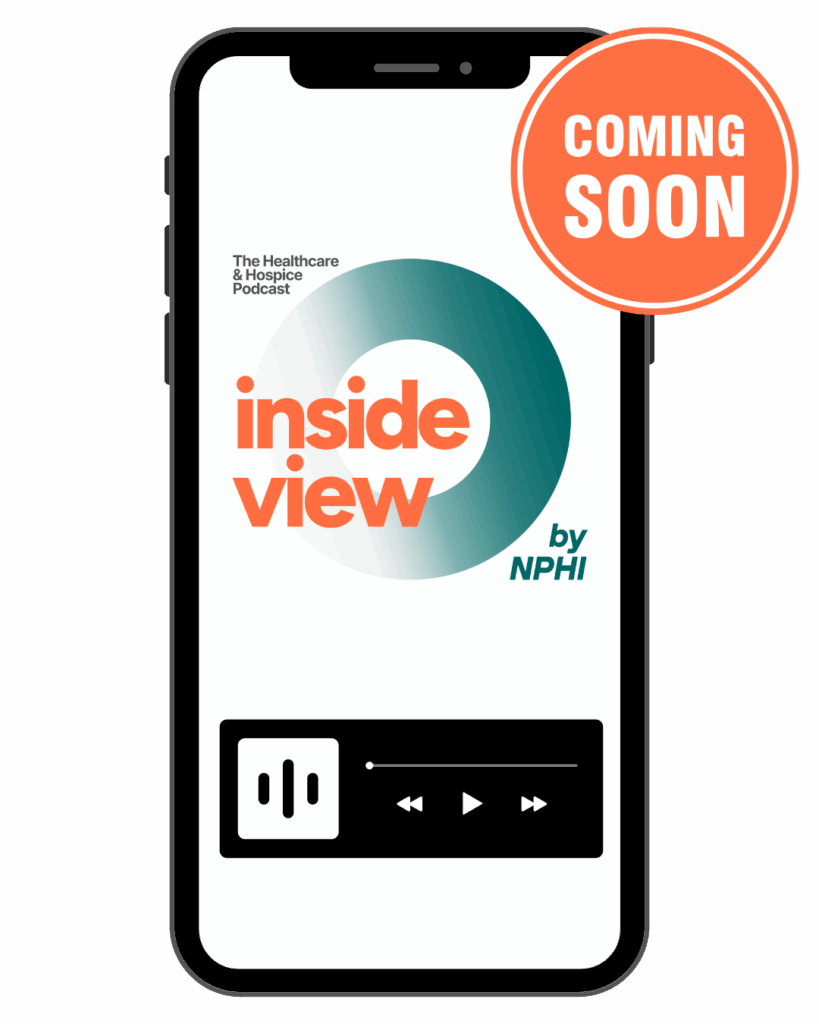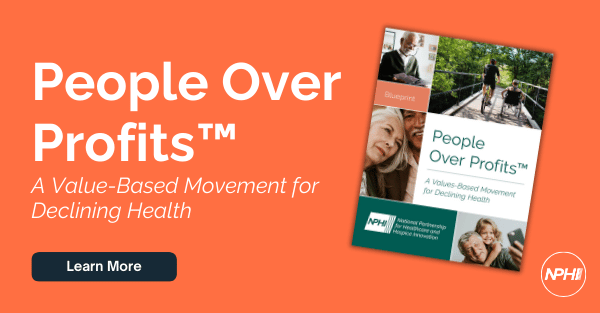We’re a Trusted Partner in Washington
We are the voice for nonprofit hospice and advanced illness care providers in our nation's capital.
We collaborate with our members, government leaders, and healthcare stakeholders to develop policies and recommend regulations that support patients, families, and nonprofit healthcare providers.
Showcasing the value of our members
Our members are pioneers in home-based care, with decades of leadership shaping hospice policy from the very beginning. Today, we advocate for regulations that reflect their expertise and uphold the highest standards of care.
Championing high-quality care
We advocate for policies that prioritize compassionate, high-quality care for patients and families, because they are at the center of our mission — and always will be.
Illustrating the unique role of nonprofit providers
Nonprofit providers put people over profits — delivering care that prioritizes dignity, compassion, and community needs. We amplify their value by showing why mission-driven providers set the gold standard for hospice and advanced illness care.
The Healthcare Landscape is Changing.
Healthcare is undergoing rapid transformation, presenting hospice and advanced illness providers with significant challenges. These include adapting to the growth of managed care and the shift from fee-for-service to value-based models, addressing outdated benefit structures and adjusting to the increasing emphasis on home-based care, which necessitates new provider collaborations.
As the community continues to evolve, hospice providers must stay ahead of these changes to ensure they deliver high-quality, efficient care in a rapidly changing environment.
Our Policy Priorities for Elevating Nonprofit Providers
Improving Hospice Program Integrity
Our team works closely with CMS to protect and preserve high-quality providers while aggressively overseeing bad actors.
Exploration of New Benefit Structures
Through innovative thinking, NPHI is exploring new payment and eligibility models to help shape the future of the Medicare hospice benefit.
Equipping Members for Value-Based Care
We offer resources like a Value-Based Contracting Playbook and organized workgroups for engaging with value-based arrangements.
Expanding Our Traditional Narrative
Members are encouraged to explore the full spectrum of care beyond traditional hospice, including palliative, home-based primary care, PACE programs, among others.
Milliman Study: Key Differences Between Nonprofit & For-Profit Hospices
When it comes to hospice care, mission matters. That’s why NPHI commissioned an independent study—to shine a light on how nonprofit providers are different. The findings are clear: nonprofit hospices consistently offer more personalized, higher-touch care.
- Nonprofits average a 3% net margin vs. nearly 20% for for-profits.
- Nonprofits deliver 10% more nursing visits, 35% more social work visits, and twice the therapy per patient day
- Nonprofits more often serve high-need patients with recent inpatient stays.
- For-profit hospices report spending less than half what nonprofit hospices report on bereavement services.
Tackling Hospice Fraud & Abuse
Protecting Patients from "Profiteering" & Fraudulent Providers
At NPHI, we believe that hospice and advanced illness care should always prioritize patients and uphold integrity. Sadly, in recent years, some providers have exploited the system for profit, compromising the quality of care.
We collaborate with the authorities and advocate for changes to prevent these profiteers from misusing Medicare funds. It’s simply unethical to profit from the Medicare hospice benefit at the expense of high-quality patient care.
Policy & Advocacy Communications
We communicate with leaders on the Hill in Washington D.C. and ensure our members receive timely policy updates via email. Members have access to important communications such as Policy & Regulatory Briefs, Comment Letters & Congressional Correspondence, and Policy Alerts.



Member Advocacy Resources
Members have access to resources that help navigate the complex policy landscape and support effective advocacy efforts.










